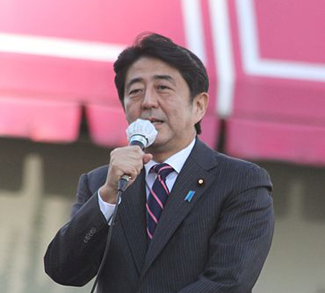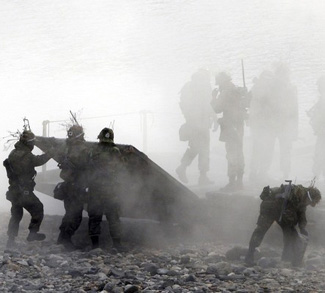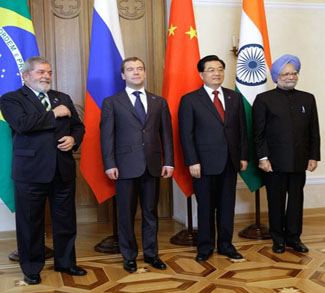The results of last week’s Japanese elections didn’t bring any real surprises. The Democratic Party of Japan (DPJ) that has ruled the country since 2009 was demolished by the very party it originally unseated- an outcome foretold by both pollsters and a massive wave of defections that hit the DPJ in the lead up to election day. This electoral flight from the DPJ benefitted the LDP as well as several smaller parties such as New Komeito and the Japan Restoration Party. It seems, at least for now, that the two-party experiment in Japanese politics is over.
Given the economic, demographic, and military challenges Japan is faced with, it’s not surprising that this latest campaign was super-charged with messianic rhetoric. Abe pushed hard to define himself as someone who could rejuvenate the Japanese economy after a quarter century of stagnation. As for his foreign policy, he pledged to boost defense spending and stand up to an increasingly assertive China in their bilateral dispute over the Senkaku Islands. The latter message seemed to resonate with the Japanese public, if not evident in the convincing vote count for the LDP, then certainly in the surprising 54-seat haul for the nationalist, right-leaning Japan Restoration Party.
But where does rhetoric end and geopolitical reality begin?
In the economic sphere, the LDP coalition headed up by Abe will have its work cut out for it if it wants to reverse the downward trend of Japan’s economic trajectory. Abe will be presiding over an economy that is beset by public debt, declining exports to China, a strong yen, and a rapidly aging population.
Interestingly, several of these problems could potentially be addressed in one fell swoop via a controlled dose of inflation, though doing so may prove politically toxic with certain influential constituencies within the Japanese voting public. This seems to be exactly what Abe intends to do. He has already met with officials at the Bank of Japan (BOJ) to lobby for an increase of its current non-binding cap of one percent annual inflation to a hard cap of two percent. To fill out this new inflationary space, Abe intends to promote a round of quantitative easing, where the BOJ will purchase government bonds and increase the money supply in a ‘controlled’ way. The macroeconomic impact of such a policy would be to promote inflation, thus making Japan’s colossal public debt (250% GDP) more serviceable, while simultaneously devaluing the yen and making Japanese exports more competitive in global markets.
But of course, the solution is rarely so easy. If it were, Japan would have hauled itself out of the economic mire a long time ago. A heavy bout of quantitative easing carries two risks with it. First, there is the potential for a ruinous inflationary spiral– Abe is ‘riding the tiger’ so to speak, and Japan lacks the deflationary safety net that the US has by virtue of worldwide demand for the USD. Second, the process of leaning on inflation to eat away at debt inevitably harms creditors, and in Japan’s case its creditors are overwhelmingly domestic; more specifically, its own banks and population at large. There is also the matter of Japan’s aging population finding that their pension benefits are worth less and less as the price of living slowly rises.
The net political result of all this is electoral blowback. So, if Shinzo Abe’s LDP is to embark on an inflationary solution to Japan’s economic malaise, it will need to be quick out of the gate and hope that the hypothetical macroeconomic benefits down the road will outweigh the guaranteed dissatisfaction that these policies are sure to create.
Shinzo Abe has also promised to shore up Japan’s military and maintain a hard line on China over the Senkaku Island dispute. But even more so than in the case with economic matters: this is easier said than done.
The lion’s share of election rhetoric surrounding the Senkakus will inevitably come to nothing, like Abe’s call to amend Japan’s pacifist constitution and rebrand the Self Defense Force. These policies would still fall short of the support threshold required to go through. And as for the defense spending increases that Abe has called for- they won’t tilt the military balance between China and Japan, especially given Japan’s considerable public debt and overall inability to match Beijing dollar-for-dollar.
Yet it cannot be claimed that the Abe victory won’t affect the strategic landscape in East Asia. By substituting a rigid, immovable negotiating partner on the Japanese side to coincide with what is essentially an immovable object on the Chinese side in Xi Jinping, the potential for military conflict over the Senkakus has certainly increased.
There are also implications for the US-Japanese military alliance. A far cry from the Asia-centric message trumpeted by the DPJ’s Yukio Hatayama after he took office in 2009, the LDP’s Abe will be looking to anchor Japanese defense policy on the US security commitment. This means that if the Obama administration’s ‘Asia pivot’ were ever to grow into an overt effort to contain or encircle China- Washington would now find a more willing partner in Tokyo.




